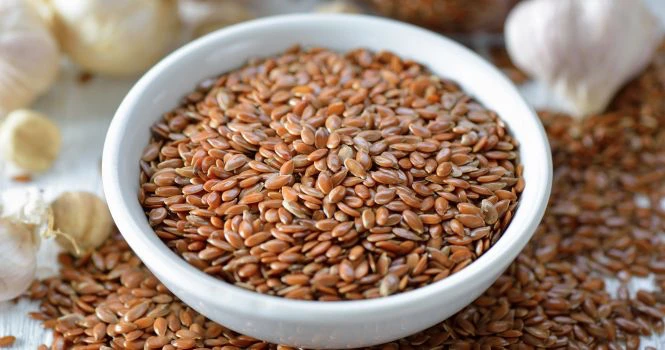Benefits of Blueberries
What are Blueberries?

Blueberries are small, round, sweet fruits with a deep blue-purple color, and they’re native to North America.
They’re part of the Vaccinium family, which also includes cranberries and bilberries.
Known for their delightful taste and impressive nutritional profile, blueberries have become a popular and versatile fruit around the world. So, let’s dive into the world of blueberries and explore all the amazing things they have to offer!
Types of Blueberries
There are primarily two types of blueberries that you’ll come across: highbush and lowbush blueberries.
1. Highbush Blueberries (Vaccinium corymbosum):
These are the most common type found in stores and are cultivated extensively for commercial production.
They’re larger in size, and their bushes can grow up to 6-12 feet tall. Highbush blueberries are further divided into two subcategories – Northern and Southern highbush, which are adapted to different climates.
2. Lowbush Blueberries (Vaccinium angustifolium):
Also known as wild blueberries, lowbush blueberries are smaller in size and have a more intense, tangy flavor. As the name suggests, their bushes grow closer to the ground, reaching heights of 1-2 feet.
These blueberries are typically found in the wild, especially in northeastern North America, and are also harvested commercially, though to a lesser extent than highbush blueberries.
Nutritional info
| Nutrient | Amount | % Daily Value* |
| Calories | 84 | |
| Total Fat | 0.5 g | 1% |
| – Saturated Fat | 0 g | 0% |
| – Trans Fat | 0 g | |
| Cholesterol | 0 mg | 0% |
| Sodium | 1 mg | 0% |
| Total Carbohydrate | 21 g | 7% |
| – Dietary Fiber | 3.6 g | 14% |
| – Total Sugars | 15 g | |
| – – Added Sugars | 0 g | 0% |
| Protein | 1.1 g | 2% |
| Vitamin D | 0 mcg | 0% |
| Calcium | 9 mg | 1% |
| Iron | 0.4 mg | 2% |
| Potassium | 114 mg | 2% |
| Vitamin C | 14.4 mg | 16% |
| Vitamin K | 28.6 mcg | 24% |
| Vitamin A | 80 IU | 2% |
| Vitamin E | 0.8 mg | 5% |
| Manganese | 0.5 mg | 25% |
*Percent Daily Values are based on a 2,000-calorie diet. Your daily values may be higher or lower depending on your calorie needs.
Calories and Carbs in Blueberries | Are blueberries high in sugar?
| Attribute | Information |
| Nutrients per Serving (1 cup) | |
| – Calories | 84 |
| – Carbs | 21 g |
| Are blueberries high in sugar? | Moderate (15 g) |
| Glycemic Index (GI) | Low (40-53) |
| Glycemic Load (GL) | Low (5.6) |
5 Important Benefits of Blueberries
Blueberries are packed with nutrients that offer various health benefits.
Here are five important benefits of incorporating blueberries into your diet:
1. Rich in Antioxidants:
Blueberries are high in antioxidants, particularly anthocyanins, which give them their vibrant color. Antioxidants help protect our bodies from damage caused by free radicals, which may reduce the risk of chronic diseases like heart disease, cancer, and age-related cognitive decline.
2. Boost Brain Health:
Studies have shown that blueberries may improve memory and cognitive function, thanks to their antioxidant and anti-inflammatory properties. They are believed to protect brain cells from oxidative stress and reduce inflammation, potentially promoting overall brain health and delaying the onset of age-related cognitive decline.
3. Support Heart Health:
Blueberries are an excellent source of fiber, vitamin C, and potassium, which are all essential for maintaining a healthy heart. The antioxidants present in blueberries can also help reduce the risk of heart disease by lowering LDL cholesterol (the “bad” cholesterol) levels and preventing the oxidation of LDL particles.
4. Improve Digestion and Gut Health:
The dietary fiber in blueberries aids digestion by promoting regular bowel movements and preventing constipation. Additionally, blueberries are a source of prebiotics, which feed the beneficial bacteria in your gut and contribute to a healthy gut microbiome.
5. Support Weight Management:
Blueberries are low in calories and high in fiber, making them a great snack option for those looking to manage their weight. The fiber helps you feel fuller for longer, potentially reducing overall calorie intake and aiding in weight management.
By enjoying blueberries as part of a balanced diet, you can reap these and many other health benefits. They’re not only delicious but also versatile and easy to incorporate into various meals and snacks!
Blueberries Benefits Sexually
While there is no direct evidence that blueberries specifically improve sexual health, they do contain various nutrients and compounds that may indirectly contribute to better sexual function and overall well-being. Here are a few ways blueberries could potentially benefit sexual health:
1. Improved blood circulation:
Blueberries are rich in antioxidants, particularly flavonoids, which can help improve blood circulation. Better blood flow is essential for healthy erectile function in men and may also contribute to improved arousal and sensitivity in women.
2. Heart Health:
As I mentioned earlier, blueberries can support heart health by reducing LDL cholesterol levels and preventing the oxidation of LDL particles. A healthy cardiovascular system is crucial for maintaining good sexual function, as it ensures adequate blood flow to the genital region.
3. Stress Reduction:
Chronic stress can negatively impact sexual health and libido in both men and women. The antioxidants in blueberries may help reduce oxidative stress and inflammation in the body, potentially contributing to a more relaxed state and improved sexual function.
4. Support overall health:
Blueberries are packed with essential vitamins, minerals, and fiber that contribute to overall health and well-being. When your body is in good health, it’s more likely to function optimally in all areas, including sexual health.
Benefits for Skin
Blueberries are packed with nutrients that can benefit not only your overall health but also your skin. Here are some ways in which blueberries can be beneficial for your skin:
1. Antioxidant Protection:
Blueberries are rich in antioxidants, including vitamin C and anthocyanins. These antioxidants can help neutralize free radicals and protect your skin from oxidative stress, which can cause premature aging, wrinkles, and fine lines.
2. Collagen Production:
Vitamin C in blueberries plays a crucial role in collagen synthesis. Collagen is a protein that provides structure and elasticity to the skin, keeping it firm and youthful. By supporting collagen production, blueberries may help maintain the skin’s overall appearance and slow down the aging process.
3. Anti-inflammatory Properties:
Blueberries possess anti-inflammatory properties, which can help soothe irritated or inflamed skin. They may provide relief for skin conditions such as eczema, psoriasis, or acne, by reducing redness and inflammation.
4. Skin Hydration:
Blueberries have a high water content, which can help keep your skin hydrated. Proper hydration is essential for maintaining healthy skin, preventing dryness, and maintaining a radiant complexion.
5. Skin Repair:
The vitamin A and vitamin C found in blueberries can aid in skin repair by promoting cell turnover and regeneration. This may contribute to the healing process of damaged skin, such as sunburns, scars, or acne marks.
Incorporating blueberries into your diet can provide various benefits for your skin health. You can also explore blueberry-based skincare products or DIY face masks for topical application to harness the power of these nutritious berries directly on your skin.
Benefits for Stomach
Blueberries offer several benefits for stomach health and digestion, making them a great addition to a gut-friendly diet. Here are some of the ways blueberries can support stomach health:
1. High Fiber Content:
Blueberries are a good source of dietary fiber, which is essential for maintaining healthy digestion. Fiber adds bulk to your stool, promoting regular bowel movements and preventing constipation. It can also help manage diarrhea by absorbing excess water in the digestive tract.
2. Prebiotic Properties:
Blueberries contain prebiotics, which are non-digestible carbohydrates that act as food for the beneficial bacteria in your gut. By promoting the growth of these good bacteria, blueberries can contribute to a healthy gut microbiome, which is essential for optimal digestion and overall health.
3. Antioxidant and anti-inflammatory effects:
The antioxidants and anti-inflammatory compounds found in blueberries can help protect the stomach lining from damage, potentially reducing the risk of developing stomach ulcers or gastritis. These properties may also alleviate symptoms in those with inflammatory bowel diseases, such as Crohn’s disease or ulcerative colitis.
4. Reducing Bad Bacteria:
Some studies suggest that blueberries may inhibit the growth of harmful bacteria, such as Helicobacter pylori, which is associated with stomach ulcers and other gastrointestinal issues. By limiting the growth of harmful bacteria, blueberries can support a healthy balance of gut microbes.
Incorporating blueberries into your diet can help support stomach health and promote optimal digestion. Enjoy them fresh, in smoothies, or as part of a healthy meal or snack to reap their gut-friendly benefits.
Who should not take blueberries? | Precautions to Take With Blueberries
While blueberries are generally safe and healthy for most people, there are certain situations where some individuals should be cautious or avoid them.
Few precautions to take with blueberries:
1. Allergies:
Although blueberry allergies are rare, some individuals may be allergic to blueberries or other berries. If you have a known allergy to blueberries or experience symptoms such as itching, hives, swelling, or difficulty breathing after consuming them, avoid blueberries and consult your healthcare provider.
2. Blood Thinners:
Blueberries are rich in vitamin K, which plays a crucial role in blood clotting. If you are taking blood-thinning medications, such as warfarin, consuming large amounts of blueberries might interfere with the effectiveness of these medications. Consult your healthcare provider about the appropriate intake of vitamin K-rich foods, including blueberries, while taking blood thinners.
3. Diabetes:
Although blueberries have a low glycemic index and are considered a healthy fruit for people with diabetes, it’s still essential to monitor your overall carbohydrate and sugar intake. If you have diabetes, consume blueberries in moderation and incorporate them into your meal plan, considering their carbohydrate content.
4. Gastrointestinal issues:
For some people, consuming large amounts of blueberries or other high-fiber foods can cause digestive issues, such as gas, bloating, or diarrhea. If you have a sensitive stomach or are prone to gastrointestinal problems, start by consuming smaller portions of blueberries and gradually increase your intake to assess your tolerance.
5. Pesticide Residues:
Blueberries can sometimes contain pesticide residues. To minimize your exposure to these chemicals, consider choosing organic blueberries or wash them thoroughly before consuming.
Frequently Asked Questions
What Happens if You Eat Blueberries everyday?
Eating blueberries daily can provide health benefits such as improved digestion, antioxidant protection, better heart and brain health, and support for weight management. However, it’s important to maintain a balanced diet with a variety of fruits and vegetables.
How many Blueberries per day?
A typical serving size is 1 cup (about 148 grams) of blueberries per day, which provides essential nutrients and antioxidants without overloading on calories or sugar.
Is blueberry a Superfood?
Yes, blueberries are considered a superfood due to their high antioxidant content, essential nutrients, and numerous health benefits, including supporting brain, heart, and digestive health.
What is the Main Antioxidant in Blueberries?
The main antioxidant in blueberries is anthocyanins, a type of flavonoid that gives blueberries their vibrant blue color and offers numerous health benefits.
Do blueberries lose their antioxidant benefit when taken with dairy?
Blueberries’ antioxidant benefits can be slightly reduced when consumed with dairy, but they still provide health benefits.
What fruits have the same antioxidant value of blueberries?
Fruits with similar antioxidant values to blueberries include blackberries, raspberries, strawberries, and cranberries.
Is it good to eat blueberries everyday?
Yes, eating blueberries every day can be beneficial for overall health when part of a balanced diet.
Do blueberries burn belly fat?
While blueberries alone don’t burn belly fat, their fiber and low calorie content can support weight loss when paired with a healthy diet and exercise.
What is the price of 1kg blueberries?
The price of 1kg blueberries varies depending on the season, location, and whether they are organic or conventionally grown.
In india it is Rs 2700 ( $33)
Why are blueberries so powerful?
Blueberries are powerful due to their high antioxidant, vitamin, and mineral content, which contribute to various health benefits.
What organs do blueberries help?
Blueberries can benefit organs like the brain, heart, and digestive system due to their nutrients and antioxidants.
Why are blueberries so expensive?
Blueberries can be expensive because they require specific growing conditions, manual labor for harvesting, and perishability.
Can you eat blueberries at night?
Yes, you can eat blueberries at night, and they may promote relaxation due to their melatonin content.
How many calories are there in one cup of fresh blueberries?
One cup of fresh blueberries contains approximately 84 calories.
What happens if you eat blueberries every day?
Eating blueberries every day can lead to improved digestion, heart health, brain function, and weight management.
Are blueberries healthy at night?
Blueberries can be a healthy nighttime snack, but it’s essential to consider overall daily caloric intake.
Are frozen blueberries good for you?
Frozen blueberries are nutritious and retain most of their nutrients, making them a good alternative to fresh blueberries.
How many carbs are in 100g of blueberries?
In 100g of blueberries, there are about 14.5g of carbs.
What happens if you eat too many blueberries?
Eating too many blueberries can cause digestive issues and may lead to an excessive intake of certain nutrients.
What is better for you, strawberries or blueberries?
Both strawberries and blueberries are nutritious, offering different nutrients and antioxidants. Including both in your diet is beneficial.
What is the healthiest berry in the world?
The healthiest berry in the world is subjective, as various berries offer unique health benefits. Blueberries, açai, and goji berries are all considered highly nutritious.
Are blueberries good for weight loss?
Blueberries can support weight loss due to their low calorie and high fiber content, when part of a balanced diet.
Is it bad to eat 150 gm of blueberries?
Eating 150g of blueberries isn’t necessarily bad, but it’s essential to maintain a balanced diet with a variety of fruits and vegetables.
![]()









